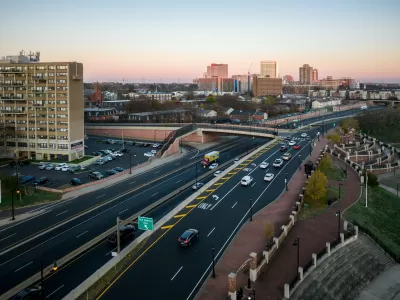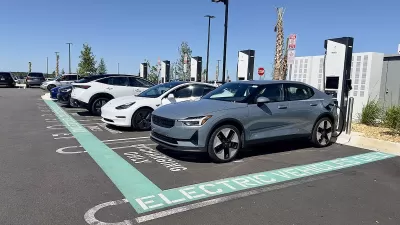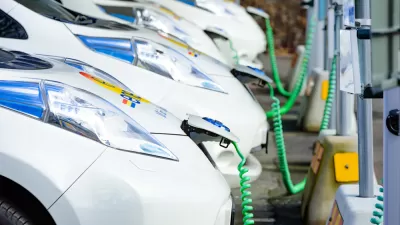The bill passed along party lines, but it received bipartisan pushback from both Republican and Democratic committee members, as well as environmentalists and car industry experts.

The New Jersey senate budget committee approved a bill last week to renew the state’s Transportation Trust Fund. As currently written, the bill would raise the gas tax around 2 cents a year and create a new registration fee for zero-emission vehicles. The money would go to support future state transportation projects, reports Colleen Wilson for NorthJersey.com.
Though the committee advanced the bill, which will now head for full approval by the New Jersey Senate, the vote was split along party lines and not everyone agrees on the approach. Republicans recently introduced their own bills for renewing the fund that would not increase the gas tax and would direct money from the sales tax on electric vehicles and a new registration fee to the state’s Transportation Trust fund. It would also rely on keeping the bonding capacity to $12 billion, less than the $15 billion proposed in the Democrats’ bill, writes Wilson.
However, experts who testified before the senate budget committee expressed concern that the proposed registration fee for electric vehicles would disincentivize the purchase or leasing of electric vehicles. Some suggested levying a 2.5-cent-per-kilowatt-hour fee at charging stations, which is similar to a gas tax in that it’s a usage based fee levied at the point of sale. Six other by states, including Iowa, use this approach.
FULL STORY: Gas tax hike — which would fund transit infrastructure — moves forward in NJ Senate

Planetizen Federal Action Tracker
A weekly monitor of how Trump’s orders and actions are impacting planners and planning in America.

Maui's Vacation Rental Debate Turns Ugly
Verbal attacks, misinformation campaigns and fistfights plague a high-stakes debate to convert thousands of vacation rentals into long-term housing.

Restaurant Patios Were a Pandemic Win — Why Were They so Hard to Keep?
Social distancing requirements and changes in travel patterns prompted cities to pilot new uses for street and sidewalk space. Then it got complicated.

In California Battle of Housing vs. Environment, Housing Just Won
A new state law significantly limits the power of CEQA, an environmental review law that served as a powerful tool for blocking new development.

Boulder Eliminates Parking Minimums Citywide
Officials estimate the cost of building a single underground parking space at up to $100,000.

Orange County, Florida Adopts Largest US “Sprawl Repair” Code
The ‘Orange Code’ seeks to rectify decades of sprawl-inducing, car-oriented development.
Urban Design for Planners 1: Software Tools
This six-course series explores essential urban design concepts using open source software and equips planners with the tools they need to participate fully in the urban design process.
Planning for Universal Design
Learn the tools for implementing Universal Design in planning regulations.
Heyer Gruel & Associates PA
JM Goldson LLC
Custer County Colorado
City of Camden Redevelopment Agency
City of Astoria
Transportation Research & Education Center (TREC) at Portland State University
Jefferson Parish Government
Camden Redevelopment Agency
City of Claremont





























